Mosquitoes, despite being a nuisance, pose significant threats to human health by transmitting diseases like malaria, dengue fever, Zika, and West Nile virus. Effective mosquito control is crucial for public health and quality of life. Traditional methods have drawbacks, leading to the adoption of integrated pest management (IPM) strategies that combine source elimination, biological controls, and targeted chemical applications. Modern solutions include innovative repellents, traps, and eco-friendly practices like using natural predators, herbal repellents, and removing standing water sources. Community engagement through education and surveillance, along with long-term habitat manipulation, is vital for sustainable mosquito management, ensuring a healthier environment and minimizing health risks associated with chemical treatments.
Mosquitoes are more than just a nuisance; they pose significant health risks, impacting quality of life globally. This comprehensive guide explores effective mosquito control strategies, delving into their behavior, breeding patterns, and the profound effects on human well-being. From traditional methods to modern innovations, environmental approaches, community education, and long-term sustainable solutions, we provide insights for tackling this ancient enemy head-on. Understanding these diverse tactics is key to creating healthier, mosquito-free environments.
Understanding Mosquitoes: Behavior and Breeding Patterns
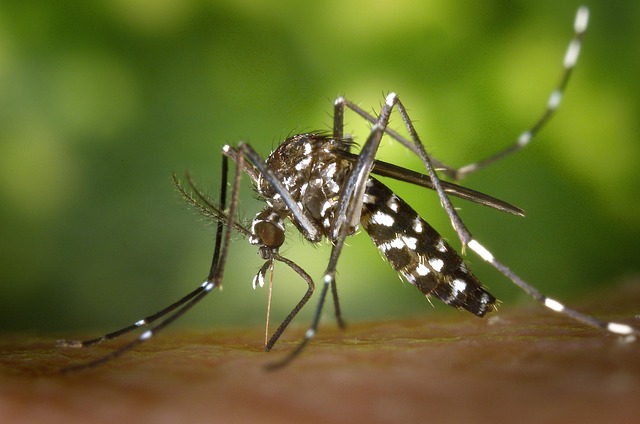
Mosquitoes are more than just a nuisance; they’re insects with complex behaviors and breeding patterns that play into their effectiveness as vectors for diseases. Understanding these patterns is crucial in implementing effective mosquito control strategies. Adult mosquitoes live for 1-4 weeks, during which time females require blood meals to produce eggs. They are most active at dawn and dusk, seeking hosts through carbon dioxide exhaled, body heat, and other cues. Mosquitoes breed in standing water, so eliminating these sites is a key part of mosquito control. Different species have varying preferences for habitats, further emphasizing the need for tailored solutions based on local mosquito populations.
Knowledge of their life cycle helps in developing integrated pest management (IPM) strategies. This includes source reduction (removing breeding sites), biological control (introducing natural predators), and chemical control (using insecticides). By combining these methods, communities can significantly reduce mosquito populations and the diseases they carry, enhancing public health and quality of life.
The Impact of Mosquitoes on Health and Quality of Life
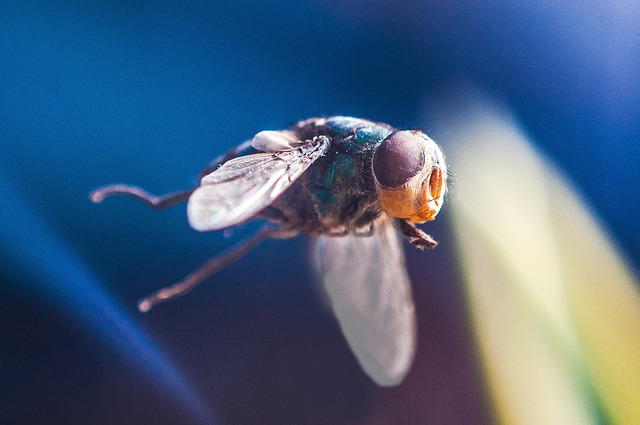
Mosquitoes, though often overlooked, significantly impact our health and quality of life. These insects are known carriers of various diseases, including malaria, dengue fever, Zika virus, and West Nile virus. In areas where mosquito control measures are lacking, these diseases can spread rapidly, posing severe risks to public health. Beyond the direct health risks, mosquitoes also affect our daily activities and overall well-being. Their persistent biting can lead to discomfort, sleep disturbances, and even anxiety for many individuals.
The presence of mosquitoes in residential areas can create an environment that hinders outdoor enjoyment during peak hours, limiting social activities and leisure time. Effective mosquito control is not just about reducing annoyance; it’s a crucial strategy to protect families, communities, and public health. By implementing robust mosquito control solutions, residents can reclaim their outdoor spaces and enjoy a better quality of life.
Traditional Mosquito Control Methods: Successes and Limitations
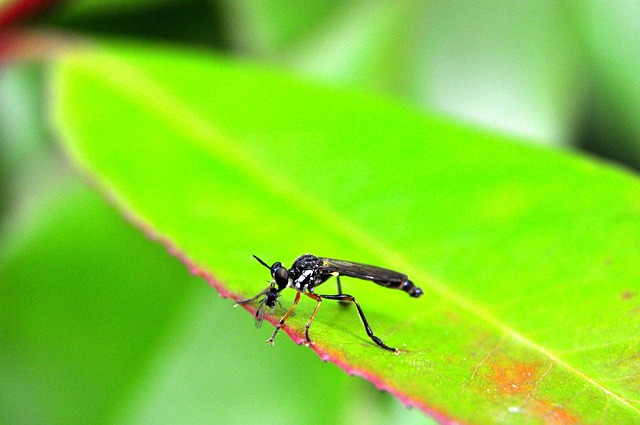
Traditional mosquito control methods, such as spraying insecticides and using chemical repellents, have been in practice for decades. These methods offer quick relief from mosquito populations by killing adult mosquitoes on contact or deterring them from feeding. However, their limitations are significant. First, these chemicals can have adverse effects on the environment, including water bodies and non-target organisms like beneficial insects and wildlife. Second, they provide only temporary solutions as new mosquitoes continuously emerge from breeding sites. Third, resistance to insecticides is growing, rendering these methods less effective over time.
Moreover, traditional methods often fail to address the root causes of mosquito problems—breeder sources. Mosquitoes require standing water to reproduce, and chemical treatments don’t eliminate these habitats. As a result, even after treatment, mosquitoes can quickly rebound, leading to ongoing health risks and treatment costs. Effective long-term mosquito control requires integrated pest management strategies that combine multiple methods, including source elimination, biological controls, and targeted applications of chemicals only when necessary.
Modern Mosquito Solutions: Innovations in Repellents and Traps
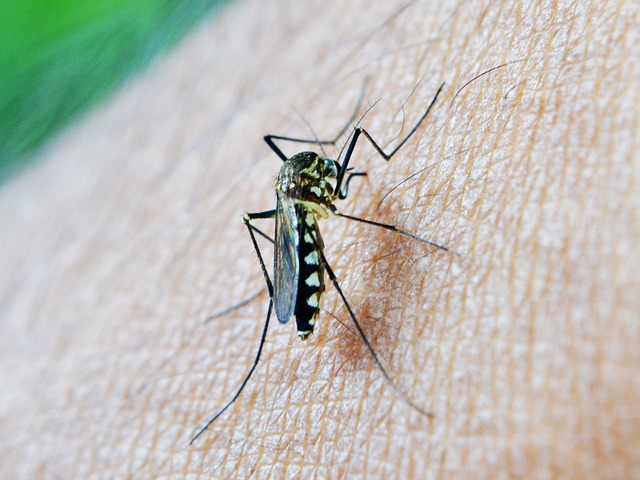
Modern Mosquito Solutions have revolutionized the way we combat these pesky insects, offering innovative repellents and traps that go beyond traditional methods. One notable advancement is the development of advanced chemical repellents that are not only more effective but also environmentally friendly. These modern formulations utilize complex molecular structures to repel mosquitoes, often targeting specific sensory receptors unique to these pests. This precision approach minimizes the impact on beneficial insects and other wildlife.
In addition to repellents, new mosquito traps employ sophisticated technologies like light emitters and carbon dioxide release systems to attract and capture mosquitoes. These traps are designed to mimic human body heat and breathing patterns, luring mosquitoes in and trapping them effectively. Such innovations not only provide better mosquito control but also offer more discreet and aesthetically pleasing solutions for residential areas, ensuring a comfortable living environment without compromising on protection from these nuisance-causing insects.
Environmentally Friendly Mosquito Control Practices
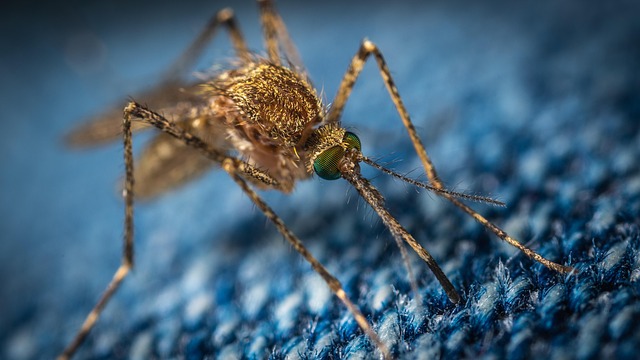
In the quest for effective mosquito control, it’s essential to explore environmentally friendly practices that offer a sustainable solution. Traditional methods often rely on chemicals, which can have detrimental effects on both the ecosystem and human health. As such, many professionals now advocate for integrated pest management (IPM) strategies that minimize these risks. One key approach is using natural predators like bats, birds, and certain fish species to control mosquito populations. These biological controls are highly effective yet harmless to non-target organisms.
Additionally, modifying the environment plays a crucial role. Removing standing water where mosquitoes breed is fundamental. This includes emptying containers, cleaning gutters, and addressing any stagnant water sources around homes. Planting mosquito-repelling herbs like citronella, lavender, or marigolds can also deter these pests naturally. Moreover, using organic repellents and traps that employ natural ingredients provides an eco-conscious alternative to chemical sprays, ensuring a safer and more harmonious coexistence with these irritating yet essential insects.
Community Engagement and Public Health Education

Community engagement plays a vital role in effective mosquito control. Educating residents about the importance of public health and simple preventive measures can significantly reduce mosquito-borne disease risks. By hosting awareness campaigns, workshops, or distributing informational materials, communities can empower individuals to take proactive steps like eliminating standing water sources, using insect repellents, and installing screens on windows. These collective efforts create a healthier environment for everyone.
Public health education also emphasizes the role of surveillance and reporting. Encouraging residents to identify and report mosquito breeding grounds, such as abandoned pools or clogged gutters, helps authorities allocate resources efficiently. This collaborative approach fosters a sense of shared responsibility, ensuring that mosquito control strategies are tailored to local needs and consistently updated to stay ahead of evolving challenges.
Long-Term Strategies for Sustainable Mosquito Management

Implementing long-term strategies is key to achieving sustainable mosquito management in residential areas. It involves a multi-faceted approach that goes beyond quick fixes. One effective method is habitat manipulation, where eliminating standing water sources becomes paramount. Mosquitoes breed in stagnant water, so removing or treating these sites—such as buckets, old tires, and birdbaths—significantly reduces their population. Regular maintenance and inspection of properties can help identify and address potential breeding grounds proactively.
Additionally, introducing natural predators like birds and bats can be a game-changer. These creatures feed on mosquitoes, so encouraging their presence through strategic landscaping and specific attractants can naturally balance the mosquito population. Integrating these organic solutions with targeted applications of environmentally friendly mosquito control products ensures long-lasting results. This holistic approach not only reduces mosquito numbers but also minimizes potential health risks associated with chemical treatments.
